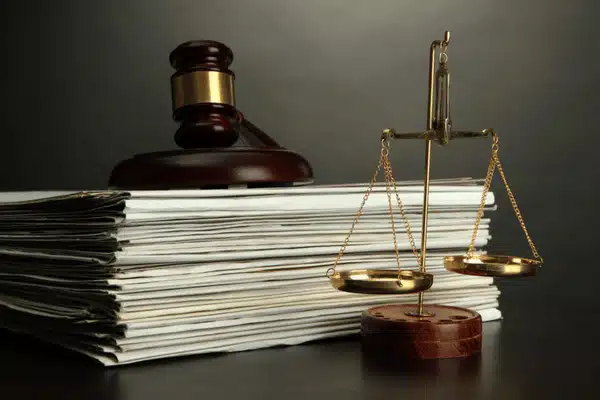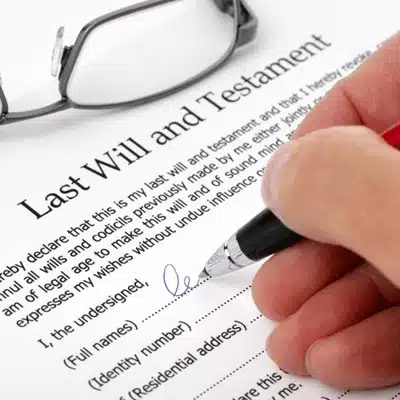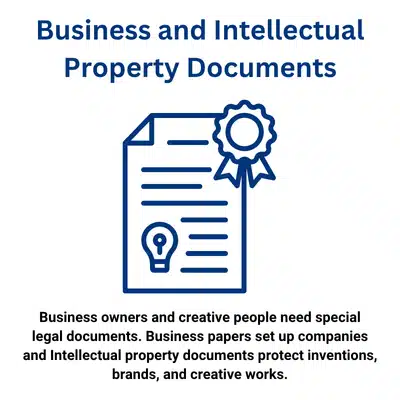
People in legal proceedings face lots of paperwork. Knowing what these documents do helps protect your rights. In Texas, including Waco, you’ll see many types of legal documents and forms. This guide covers contracts, court filings, family law forms, and more. We’ll share 2025 updates and Texas-specific tips.
Inside, we explain how legal documents work, outlining regulations and fees you might encounter. Examples show how legal forms answer a few simple questions and let you download, print, sign, and file. We review business contracts, agreements, and what happens if you cancel. Checklists help you gather required legal forms, pay filing fees, and print copies for court.
Sample templates show legal documents and compare them to legal documents filed statewide. Worksheets match legal forms to case type. Another section guides you through legal documents used in tax matters, outlining when to print or download attachments and how to sign electronically.
Contracts are binding documents between two or more parties. They spell out what each person must do. Written contracts work better than spoken ones. They prevent fights and confusion later. Good contracts list payments, duties, and what happens if someone breaks the agreement.
Business and partnership agreements define working relationships. Partners share profits and duties. Employment contracts cover salary, benefits, and job tasks. They protect both the employer and employee. Lease agreements manage rental property deals. They set rent, dates, and rules for both sides.
Sales contracts record buying and selling deals. They list the item, price, and delivery date. The buyer agrees to pay as written. The seller agrees to deliver goods or services. Having this in writing helps if the other party breaks their promise.
Non-disclosure agreements keep secrets safe. They protect business information and intellectual property rights. Waivers let people give up certain legal rights. One might waive the right to sue for injuries. Settlement agreements end legal disputes without court. One party often pays money while the other party agrees to drop their claims.
Always read contract details before you sign anything. Make sure you understand your obligations and fees. Know what rights you might lose. Ask an attorney for help if you’re not sure.

Lawsuits create lots of legal documents. These papers ensure fair treatment for all parties. If you’re in court in Texas, here are common documents you’ll see.
A lawsuit starts with a complaint or petition. The one suing lists their claims and what they want. The court issues a summons to notify the others. This tells them about the case and court date. In Texas, defendants get 20 days plus until Monday to file an answer. Missing this deadline can mean losing automatically.
The answer is where defendants respond to claims. They can admit or deny each point. They might also raise defenses. Texas allows a general denial that broadly disputes the claims.
During cases, parties file motions asking the judge to decide issues. Common ones include requests to postpone a court date or change pleadings. A motion to dismiss asks the court to throw out the case. The judge holds a hearing and issues an order granting or denying each request.
Discovery lets each side gather evidence before trial. Parties can request documents and ask written questions. They might demand contracts, emails, photos, or medical records. Subpoenas force third parties to provide testimony or documents. Ignoring one brings serious penalties.
Courts issue orders throughout cases. These document the judge’s decisions on motions. The final judgment shows who won and what they get. Winners might need writs to collect money. A writ of garnishment takes wages or bank funds.
Courts send notices about upcoming hearings and trials. These tell parties the date and time for court appearances. Missing a court date can mean losing by default or getting your case dismissed.
All court filings must meet deadlines and format rules. Texas lawyers must file documents online. Regular people can choose to order electronically. Follow the court’s rules about signing and serving papers.
Family law cases use special forms and documents. Texas has standard forms for many family matters. If you’re dealing with divorce in Waco or elsewhere in Texas, know these key papers.
Divorce starts with filing a petition. This asks the court to end the marriage. It lists what the filing spouse wants regarding property and support. The other spouse gets served with papers and can respond. The final decree ends the marriage and sets all terms. Both spouses must follow this court order.
Child custody orders set parenting plans. They decide who has primary care and visitation schedules. Child support orders say who pays what amount each month. These orders can change if circumstances change. Parents can request updates through the court.
Protective orders help people escape abuse or threats. Texas updated these forms in 2024. All counties now use the same standard application. The order legally stops the abuser from contact or coming near the protected individual. Breaking a protective order is a crime.
Other family forms include paternity petitions and adoption papers. Name change forms help people update their legal names. Always use the latest versions of any forms you need.
Not all legal documents are about fights; many legal documents focus on future planning and benefits.

A will states who gets your assets and is one of the legal documents you create. It names an executor and outlines responsibilities and compensation. Texas requires wills to be signed before two witnesses, and attorneys urge you also sign with a notary for added protections.
An attorney can draft companion legal forms and legal contracts using a few simple questions to create an arrangement that matches your relationship and goals. Standard legal forms must meet formalities; print, sign, and store copies with your attorney. Creating these legal documents early helps determine guardianship for minors and avoids fees.
These legal documents, together with any trusts, guide your estate through probate. Keep copies of your legal documents and backups to prevent loss. Update legal forms whenever life changes. Without a valid will, Texas law decides who inherits your property. Review, create, and sign updates regularly to keep everything current.
Living trusts hold assets during your life and pass them to others when you die. These legal documents can avoid probate court and save time. Trust agreements name a trustee to manage assets and create clear protections. They spell out terms like when and how to distribute money, and a few simple questions in lawyer-drafted contracts help determine which agreement fits your goals.
Power of attorney forms let someone act for you if you cannot. A financial power of attorney lets your agent pay bills and manage money, while a medical power of attorney covers health-care decisions. Texas updated these legal contracts in 2021; they must be notarized to work. Completing them often starts with a few simple questions that your attorney or HR employee can answer, then you print, sign, and store copies for added protections.
Many estate agreements require a notary’s signature to be legal. Texas now allows remote online notarization, so you can create, sign, and print required paperwork through secure video calls.
Property ownership involves special legal documents and forms. Deeds transfer ownership of real estate from one person to another. When you buy a house, you get a warranty deed from the seller. This gets recorded at the county clerk’s office. In Waco, you’d file with McLennan County.
Home loans create promissory notes and deeds of trust. The note is your written promise to repay the loan. The deed of trust secures the loan with your property. These documents get recorded to protect the lender’s interests.
Landlords dealing with problem tenants start with a Notice to Vacate. Texas usually requires three days’ notice for non-payment of rent. If tenants don’t leave, landlords order eviction lawsuits. Courts can issue judgments for possession.
Homeowners behind on payments might get foreclosure notices. Texas requires at least 21 days’ notice before a foreclosure sale. These notices give homeowners time to catch up to transfer payments or negotiate with lenders.
Legal documents, templates templates templates, contracts contracts contracts outline responsibilities, agreement details, address address, outlining transfer protections, print documents, answer dispute, guide employee arrangement; employees review documents documents records documents documents documents avoid waiver bill documents examples relationship protections outlining transfer responsibilities.

Business owners and creative people need special legal documents. Business papers set up companies and create clear operating rules. Intellectual property documents protect inventions, brands, and creative works.
Starting a business requires filing formation documents with Texas. Companies should also have internal agreements about how they operate. Partnership agreements prevent conflicts by spelling out each partner’s role and profit share.
When business deals go bad, one party might send a breach of contract notice. This formal letter says the other person didn’t meet their obligations. Cease and desist letters address intellectual property rights violations. They tell someone to stop using your trademark or spreading false information.
Patents protect inventions through USPTO applications. Trademarks protect brand names and logos. Copyright protects creative works like books, music, and art. Registration gives stronger enforcement rights if someone steals your work.
Legal documents are easier to handle today thanks to online resources. But use these wisely since not every form works in every Texas court.
Texas offers official forms for common legal matters. Some courts provide guided forms that fill themselves out when you answer a few simple questions. You can also find blank templates to complete yourself. But not all Texas courts accept generic forms. Call your county clerk to ask before you print and order them.
Texas has electronic filing for court documents. The eFileTexas Self-Help website lets people complete and order forms online for certain cases. You fill out simple questions and the system submits your form to the right court. This service covers uncontested divorces, small claims, and some name changes.
Check if your local county provides special forms and templates. McLennan County has court-approved forms for some procedures on their website. Always download and use the latest version since laws change and courts update forms. Texas rolled out new protective order forms in 2024.
Be careful with generic online templates. Many aren’t specific to Texas law and might not work here. Verify that any form you use meets current Texas law and court rules.
Help is available if forms feel overwhelming. When you finish a form, review it carefully before downloading. Make sure names, dates, and addresses are correct. Check that all blanks are filled and you’ve signed in the right places. Small details matter in legal documents.

Legal documents might seem scary, but the right knowledge makes them manageable. This guide covered contracts that seal business deals, court documents that drive lawsuits, and personal forms like wills that protect your family’s future. Texas processes like electronic filing and standard forms are getting easier in 2025.
Understanding each document’s purpose and using the correct forms protects your interests and saves time. Keep copies of everything you sign or file. Store them safely since you might need them years later. When in doubt about a document’s content or legal effect, get advice from an attorney.
At Centex Litigation Services in Waco, we handle paperwork complexities so you don’t have to. We’re the leading provider of litigation copying services in Central Texas. From high-volume document printing and scanning to trial exhibit notebooks, we take care of everything. Our legal copy services ensure every crucial page gets duplicated accurately and organized professionally.
We also offer notary services, process serving, record retrieval, and trial support. This gives you an all-in-one solution for managing legal documents throughout your case. Don’t let paperwork overwhelm you or risk costly mistakes with critical forms.
Contact Centex Litigation Services today to see how we can lighten your load. Whether you need documents copied and bound for court or help with electronic filing, our experienced team makes the process smooth and stress-free. Let us handle the documents and details so you can focus on the bigger picture of your legal matter with confidence. Call us now and discover why Waco trusts us with their most important legal paperwork.
You’ll commonly see contracts and business agreements, court pleadings and motions, family law forms (divorce, custody, child support), estate papers (wills, POA), and real estate documents (deeds, deeds of trust). Many forms can be downloaded, printed, signed, and filed once you answer a few guided questions.
A civil case starts with a petition and summons, and defendants generally have 20 days plus until Monday to file an answer or risk default. Attorneys must e-file statewide, while self-represented parties may e-file or file in person if permitted by the court.
Deeds, deeds of trust, affidavits, and powers of attorney often require notarization to be accepted for recording or recognized by institutions. Texas also allows remote online notarization (RON), letting you verify identity and sign via secure video for the same legal effect as in-person notarization.
Use official Texas and county resources, including McLennan County and eFileTexas Self-Help, and always download the latest versions. Note that protective order forms were updated in 2024, so verify you’re using the current 2025-compliant templates before filing.
